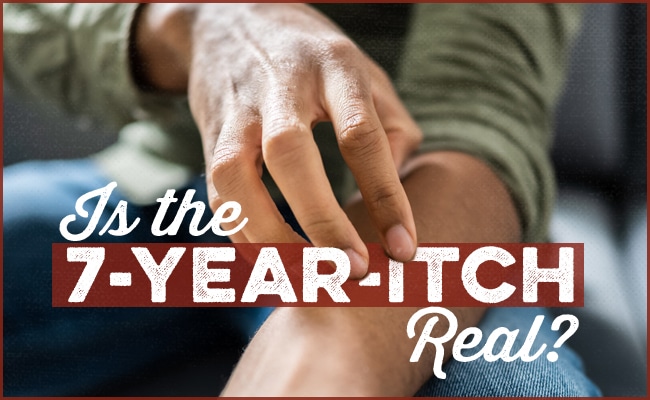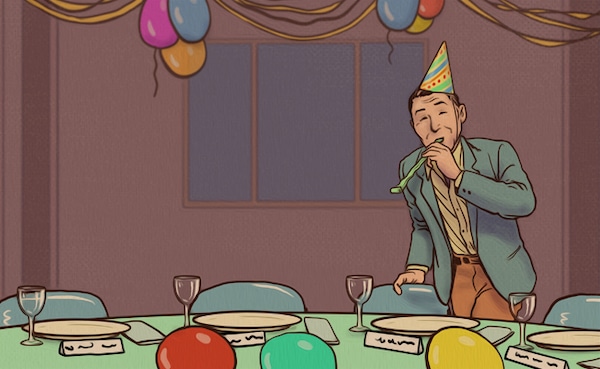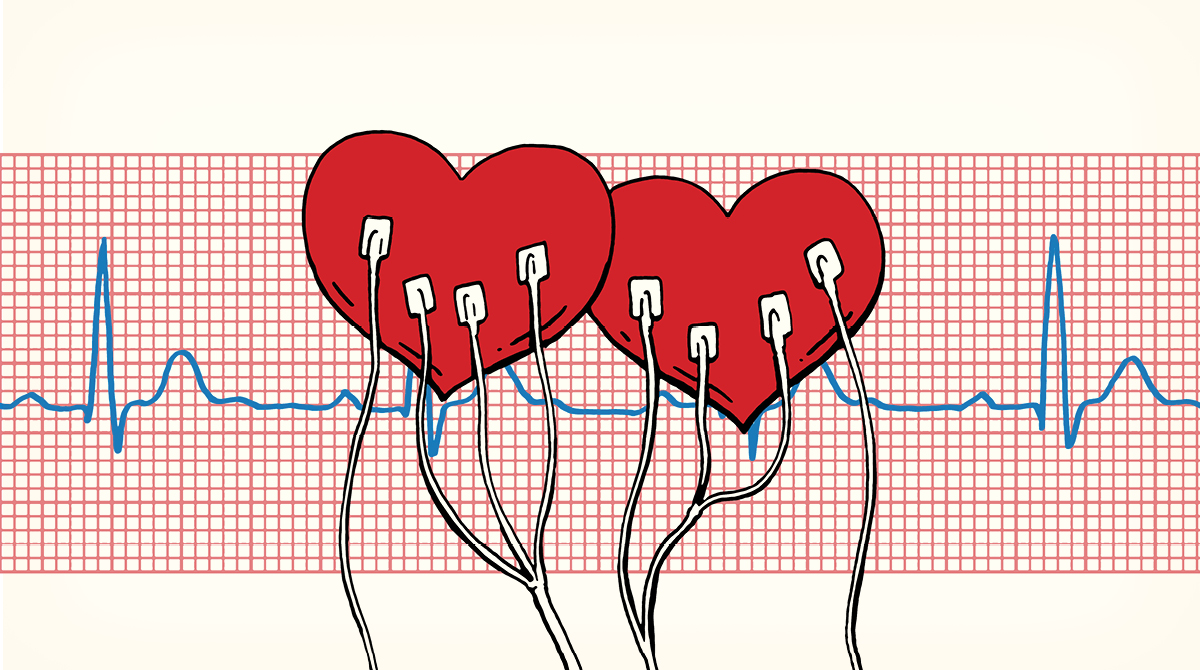
You’ve heard of the seven-year-itch.
It’s the sense of restlessness or dissatisfaction that supposedly sets in after you’ve been with someone for seven years of time. It’s most often talked about in the context of romantic relationships but is also applied to one’s “relationship” with something like a job or place.
While the seven-year-itch is part of pop culture lore, is there evidence that it’s actually real?
Very little research has been done specifically on the questions of whether the seven-year-itch exists, and if it does, why it exists. But there are things we know about human psychology and the rate that people seek change that can help us infer some answers.
If It Was Real, Why Would It Happen?
When you first fall in love, your brain is bathed in a heady cocktail of feel-good neurochemicals. These neurochemicals generate intense excitement about your significant other and your future together. And they act as a pair of perspective-altering goggles that minimize your partner’s flaws and magnify their virtues. This person is everything you ever wanted! Your relationship will be a never-ending honeymoon of bliss!
The neurochemicals of love form a kind of buffering forcefield that prevents the other person’s flaws from fully registering and keeps their annoying behaviors from being annoying.
As these neurochemicals wear off, your pedestalized portrait of the person shifts into a more nuanced picture. You start to notice their faults and weaknesses more. Areas of incompatibility, formerly ignored, increasingly come to the fore.
The neurochemicals of new love have largely evaporated by the second or third year of a relationship, so their disappearance occurs too early to explain the seven-year-itch. Yet while they wane in the main after several years, their fumes likely go on longer than that.
One of the central neurochemicals of new love is dopamine, which drives love’s feelings of excitement and pleasure. Dopamine is catalyzed by anything new, and while the novelty of new love — as a whole — eventually recedes, the partners in a couple will continue to discover new things about each other even after the relationship has become well-established. It takes longer than two or three years to learn all the secrets and idiosyncrasies of another person, and each time you do, you get a little resurgence of dopamine.
Perhaps then, the seven-year-itch arises at the time in a relationship when both partners have finally gotten to know each other like the backs of their hands. They have few new stories to share or secrets to reveal. Each person knows what the other will say before they say it. In the absence of novelty, there is an absence of excitement, and a feeling of stagnation — a feeling that the relationship has run its course — may set in.
This is, of course, just a speculative theory.
And, Is It Real?
If the seven-year-itch were real, we would expect to find a rise in relationship break-ups around a couple’s seventh year together.
While not all long-term partners get married these days, we have the most data on relationship length with regard to divorce.
Stats vary according to the data and methodology different studies use, but, on average, the highest risk of divorce seems to occur 5-8 years into a marriage.
The fact that divorce peaks within a range of years, rather than exactly at seven, may count for rather than against the existence of the seven-year-itch, given the other variables at play:
First, the clock on the 7-year-itch would presumably start running when a couple begins dating, not when they get married.
Second, you have to account not just for the length of the marriage, but the length of time between when the couple felt the itch and when they actually got divorced.
So if a couple dated for a year before getting married, their seven-year-itch would arise six years into their marriage. Once the itch emerged, they might first try simply separating, and even once they decided to divorce, it might, for personal and legal reasons, take a year or more to become official. They would thus feel the itch around their sixth wedding anniversary, but not be legally divorced until around their seventh or eighth anniversary.
If a couple dated for three years before getting married, they would experience the itch around year four of the marriage, but might not be divorced until year five.
Given the average time a couple dates before marrying and the time it takes to get a divorce, the fact that the risk of divorce peaks 5-8 years into marriage does suggest that the seven-year-itch may be a real thing.
Data from other domains of life suggest something similar. On average, people replace half of their friends every seven years, and move houses every eight years (they would presumably feel the itch to move at year seven, and it would then take another year or so to prepare their home for sale and to actually sell it).
Is the Seven-Year-Itch a Cause for Alarm?
While the existence of a seven-year-itch can’t be proven, there does seem to be something to the idea. The itch undoubtedly doesn’t arise according to a strict timetable — exactly at seven years on the dot — but likely happens somewhere around that marker.
Given that the seven-year-itch seems to sometimes lead to divorce, should you be concerned if it’s something you’ve been sensing in your relationship?
What’s important to note here is that while the seven-year-itch seems to lead some people to dissolve their relationship, the news for people who make it past that milestone is quite good: your risk of divorce goes down each year after your tenth anniversary, and years 9-15 of marriage have a particularly low risk of divorce.
The fact that some people’s relationships disintegrate after seven years while others get stronger suggests that the significance of the seven-year-itch isn’t in the phenomenon itself, but in how the partners in a couple choose to frame it.
The seven-year-itch is best interpreted not as a negative signal that your relationship has a problem, but as a neutral signal that it’s undergoing a transition.
Long-term love can remain many things: deeply satisfying, profoundly ardent, and even intensely passionate. But one thing it won’t stay is exciting.
Excitement is predicated on uncertainty, anticipation, and even a kind of pleasurable apprehension. The guessing at feelings. The gap between an imagined future and what will actually unfold. The tension of not knowing who you will end up being to each other.
Excitement dissipates once possibilities become realities and uncertainty transforms into surety. There is little room for uncertainty once you know your lover’s deepest secrets, most granular habits, and the nuanced meanings of a single eyebrow-raise.
But the diminishment of excitement is not without its compensations. As excitement decreases, feelings of stability, security, and intimacy rise, and you have the opportunity to enjoy a new set of satisfactions: The gratification of knowing someone completely, and being known that way in return. The freedom from fraught misunderstandings. The comfort of being entirely at ease with someone else. The joy of having your entire life — your past memories, present navigations, and future dreams — intertwined with another’s.
The feeling of the seven-year-itch may simply be the feeling of reaching a new threshold of familiarity in your relationship. At this juncture, it’s natural to look back a little nostalgically to the intoxicating road you traveled to get there, and to wonder if the best is behind you. But if you hold on, if you recommit to doing all the romantic stuff that brought you to this crossroads in the first place, there can be a whole nother epoch of love, happiness, and swoon-worthy fulfillment ahead.







